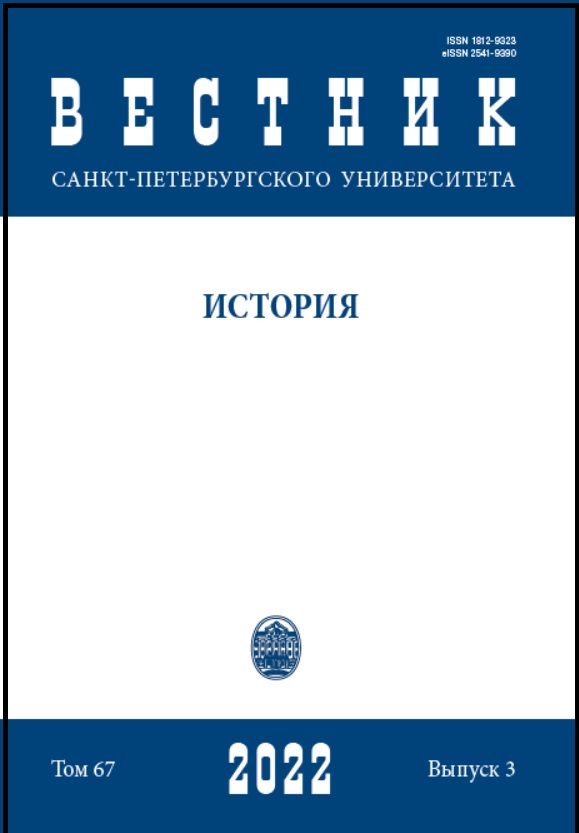Informal Ties in Party-State Bureaucracy of Yugoslavia
Abstract
The article investigates informal ties among the Yugoslav party-state bureaucracy in 1945–1965 in order to identify their influence on the disintegration processes in Yugoslavia. Interaction through unofficial channels was based on solid social-cultural preconditions and played a significant role in the life of the country. Informal ties could be formed due to military service or employment, family or friendship connections, but ties of compatriot character are most fully represented in the sources. They were lined up on a vertical basis in accordance with the existing administrative-territorial division and were predominately used to achieve some kind of material benefits. Until the early 1950s, compatriot ties could be used both in the interests of the center and subordinate regions, but afterwards only the latter option remained, so they quickly turned into a mechanism of lobbying regional interests in central bodies. Compatriot ties were closely intertwined with parochialism and particularism and fueled by the mood of the masses. For example, there were difficulties in nominating candidates of non-local origin during elections. There were politicians who did not follow the requests of their compatriots,
but presumably they were in minority. Since the 1950s, there had been a tendency to institutionally include compatriot ties in the governing bodies, in particular, the principle of proportional regional representation had been established in state and party bodies. Already in the early 1960s this course undermined the efficiency of the central government. To which extent this result was determined by the role of compatriot ties system or other factors has yet to be researched, but it can be stated that the system of informal ties became one of the factors in the disintegration of Yugoslavia.
Keywords:
federal Yugoslavia, party-state bureaucracy, informal ties, compatriot ties, lobbying interests
Downloads
References
References
Downloads
Published
How to Cite
Issue
Section
License
Articles of "Vestnik of Saint Petersburg University. History" are open access distributed under the terms of the License Agreement with Saint Petersburg State University, which permits to the authors unrestricted distribution and self-archiving free of charge.





